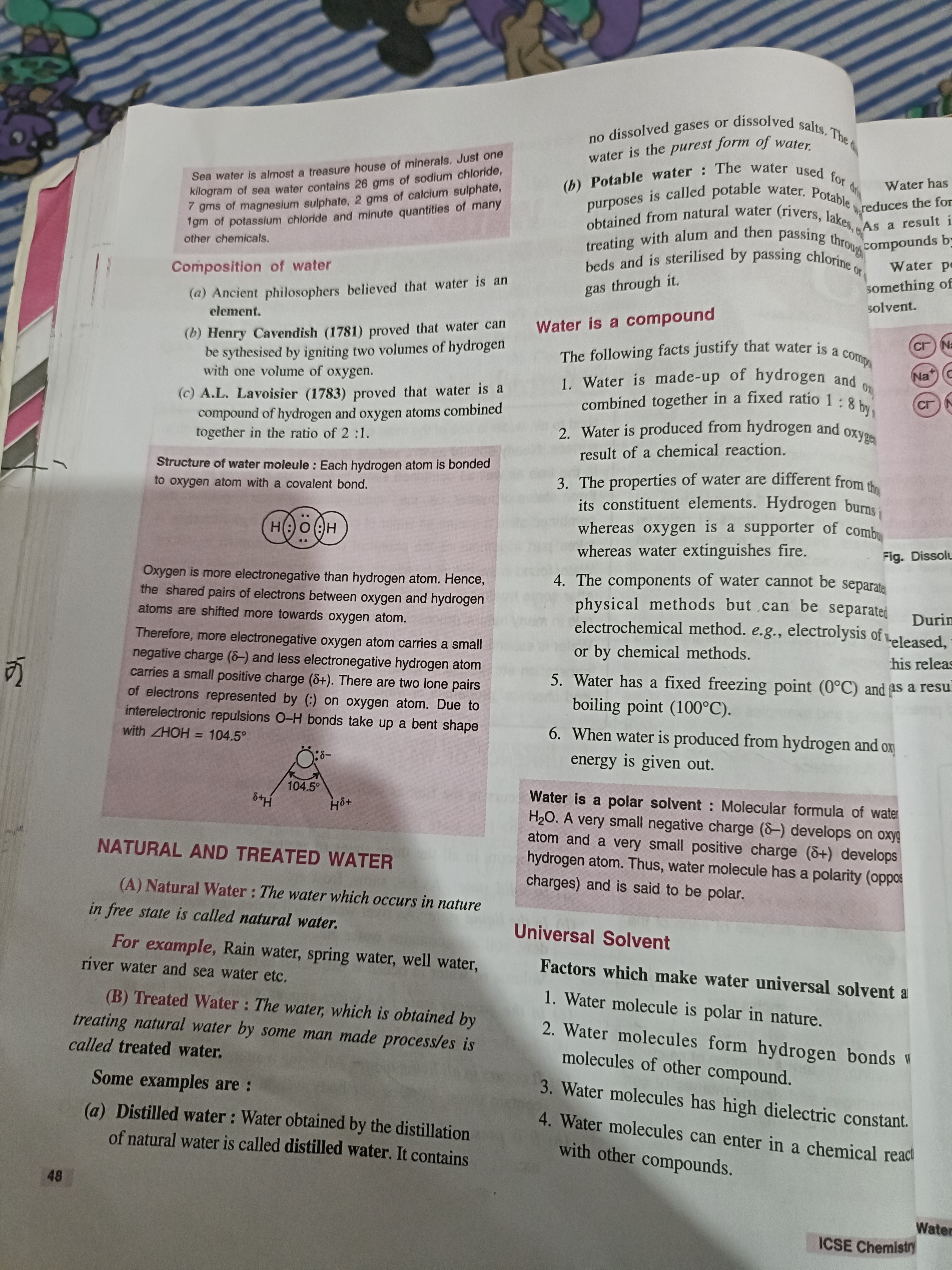What are the properties of water and its significance as a universal solvent?

Understand the Problem
The extracted image contains information about water's composition, properties, natural vs treated water, and its significance as a universal solvent. It provides historical perspectives, chemical structure, and different types of water, which may be relevant for educational purposes related to chemistry.
Answer
Polarity, high dielectric constant, hydrogen bonding, and reactivity.
The properties of water include its polarity, high dielectric constant, the formation of hydrogen bonds, and its ability to enter chemical reactions with other compounds. These properties contribute to its significance as a universal solvent, allowing it to dissolve a wide range of substances.
Answer for screen readers
The properties of water include its polarity, high dielectric constant, the formation of hydrogen bonds, and its ability to enter chemical reactions with other compounds. These properties contribute to its significance as a universal solvent, allowing it to dissolve a wide range of substances.
More Information
Water's polarity allows it to effectively dissolve ionic and polar substances, aiding in biological functions and chemical reactions.
Tips
Common mistakes include not considering the covalent bonding and polarity of water, which are crucial to its ability to act as a solvent.
Sources
AI-generated content may contain errors. Please verify critical information